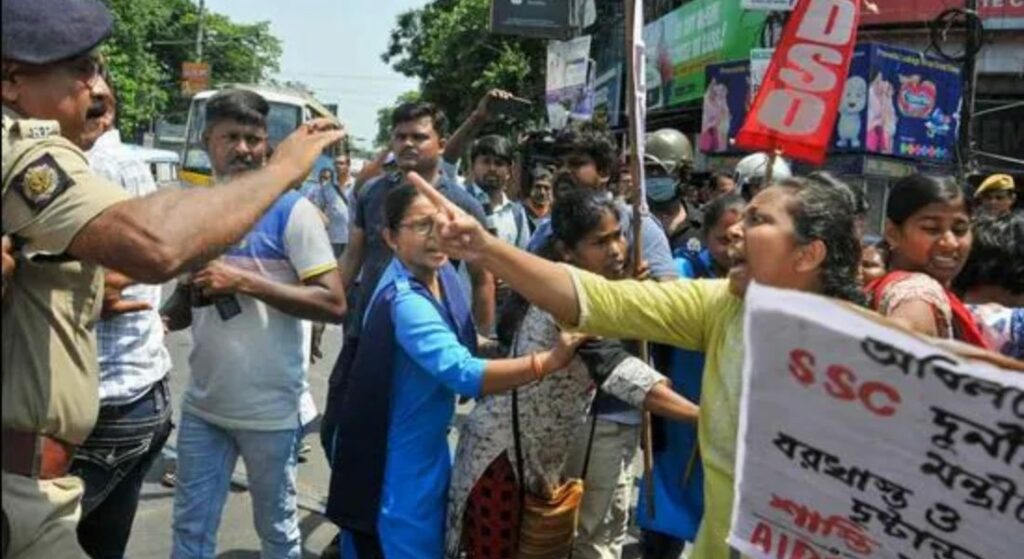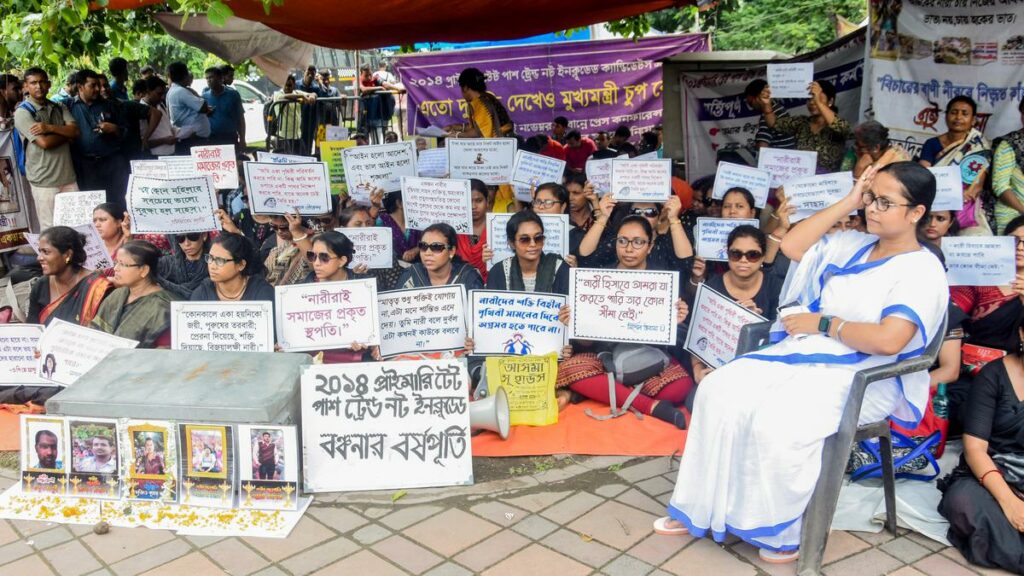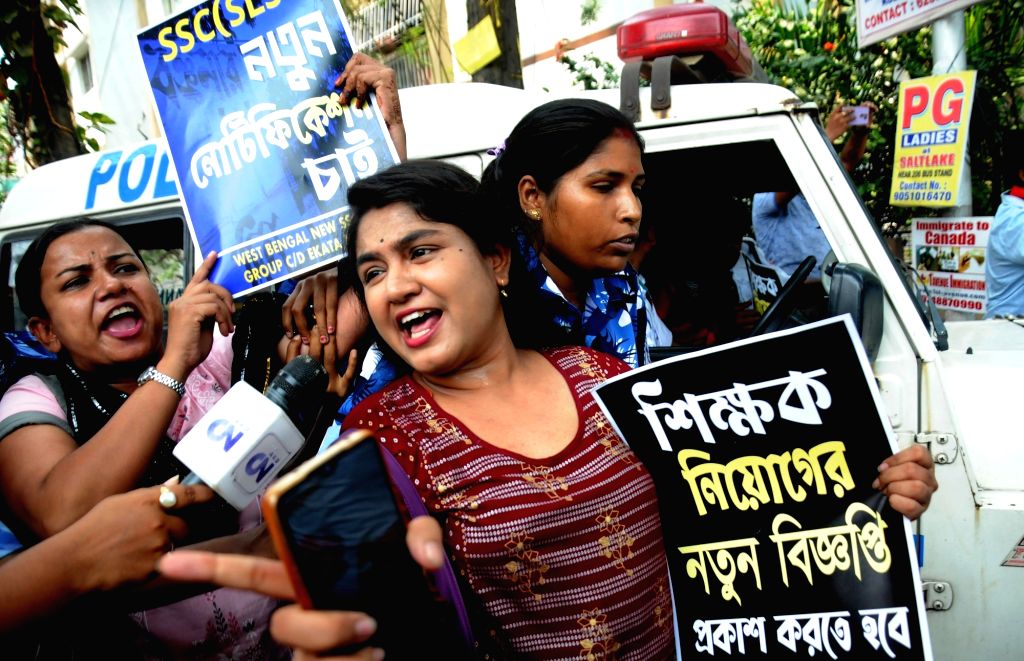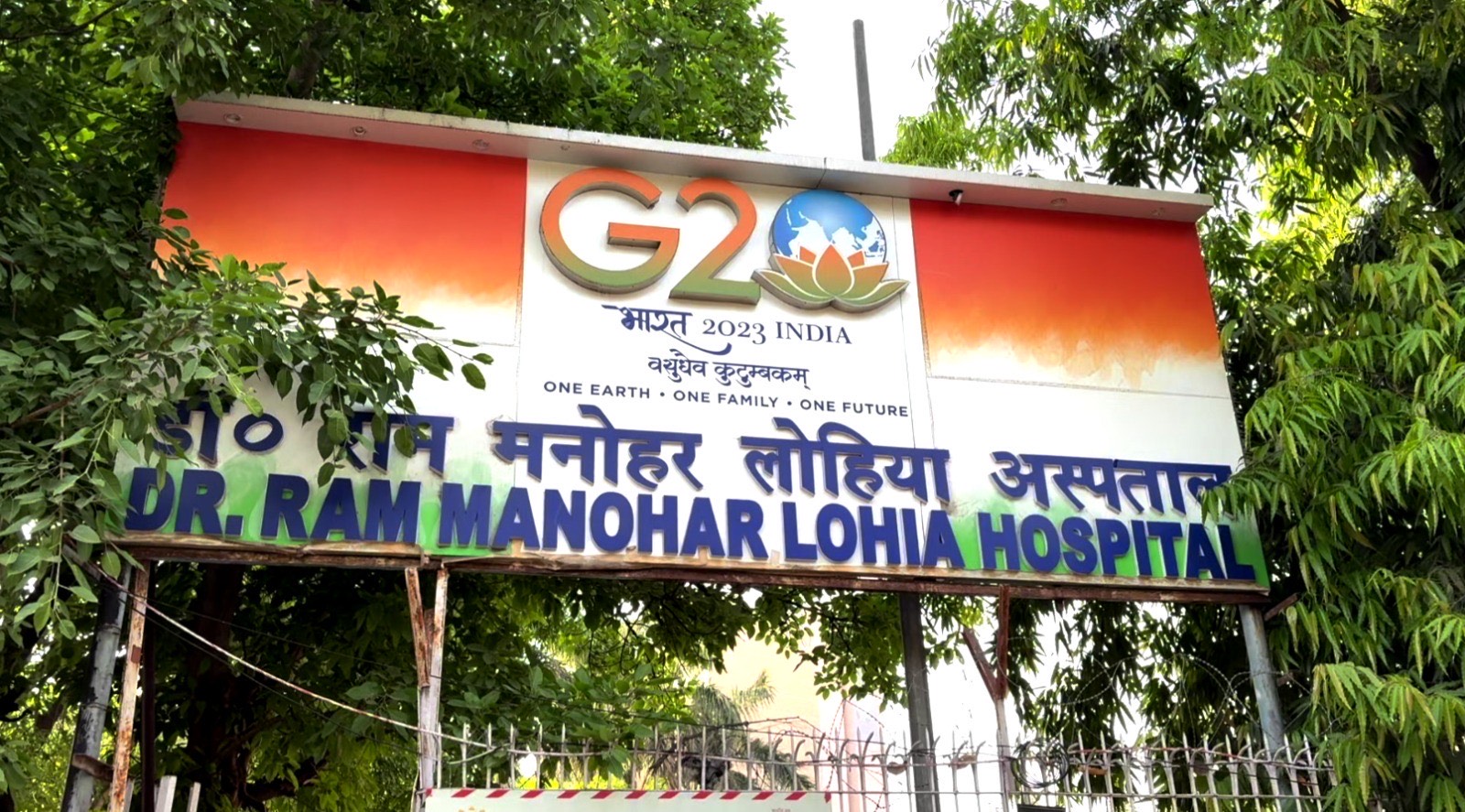Rituparna, a 32-year-old woman was overjoyed when she secured the teaching job in 2016 after years of trying.
‘I had been the sole breadwinner since my father’s illness forced him to quit his job. With my younger brother still in college, this government job was a lifeline for my family. For the first time in years, we could breathe a little easier without the constant anxiety over making ends meet,’ she recalls, her eyes welling up with tears.
However, that respite was short-lived. The court ruling invalidating her appointment due to the alleged irregularities has left Rituparna shattered. ‘I’m completely at a loss over how to navigate this situation,’ she says, her voice laced with worry and anger.
‘I had finally achieved some financial independence after years of struggle, only to have it snatched away so cruelly. Now I’m staring at an uncertain future with no clear path forward.’ The stress of the impending job loss and the Court’s order to return years’ worth of salary within a month has taken a massive mental toll on Rituparna. As she and thousands like her grapple with the fallout, Rituparna’s anguished words sum up the devastation – ‘We played by the rules, worked hard, and still got penalised for someone else’s crimes. Where is the justice in that?’
For Arpita Saha, Rituparna Ghosh, and Deepali Mondal*, landing a government teaching job through the 2016 West Bengal School Service Commission (SSC) recruitment was nothing short of a dream come true. After years of hard work, exam preparations, and interviews, they had finally secured employment that would ensure financial stability for their families. Little did they know that their joy would be short-lived.
The recent Calcutta High Court order declaring the entire 2016 SSC recruitment process null and void due to alleged irregularities has left these women, along with nearly 24,000 others, in a state of panic and despair. Their hard-earned jobs and monthly incomes now hang in the balance.

‘I had given up a private tutoring opportunity to take up this government position for stability; thinking atleast if one of us can get a good job, our daughter’s schooling will be secured. But with no job right now and with the ongoing summer vacations, I have no idea how long this job search is to lengthen. Both my partner and I have started taking up private tuition for our living. With this news taking rounds, even getting students for private tuition is really hard,’ regrets Arpita, her voice cracking with emotion.
The SSC is responsible for recruiting teachers and non-teaching staff for state-run schools in West Bengal. In 2016, it conducted the State Level Selection Test (SLST) to fill over 24,000 vacancies. However, the process was soon mired in controversy with allegations of candidates with lower scores being favoured and some getting appointments without being on the merit list.
The ruling has not only caused immense mental and financial trauma for these individuals but also sparked fears of its potential impact on the ongoing Lok Sabha polls, especially in West Bengal where the Trinamool Congress party helmed by Chief Minister Mamata Banerjee is seeking to retain its parliamentary stronghold.
Following the recent CBI probe, approximately 21000 candidates had received the jobs illegally and to top it all, it has been found that more than 9000 OMR sheets have been destroyed. However, all but one candidate, Soma Das, a cancer patient has been able to retain her job.
What followed was a legal quagmire with multiple petitions filed in the Calcutta High Court. Around the third week of April, a division bench upheld the allegations and declared the entire SLST 2016 process invalid, stripping thousands of their jobs and ordering the retrieval of salaries paid out so far within a tight 4-week deadline.
The ruling has not only caused immense mental and financial trauma for these individuals but also sparked fears of its potential impact on the ongoing Lok Sabha polls, especially in West Bengal where the Trinamool Congress party helmed by Chief Minister Mamata Banerjee is seeking to retain its parliamentary stronghold.

Political experts suggest the SSC fiasco, which the CM has vowed to challenge in the Supreme Court, could severely dent her party’s prospects if not handled deftly,
“We challenge the verdict, as it affects 1.5-2 lakh families. Is it possible to return the salary of eight years in 4 weeks?” CM, Mamata Banerjee has said.
With over 1.5 lakh families potentially affected, it is comprehensible that any misstep in resolving this crisis could lead to a massive outpouring of anger that the opposition will be keen to capitalise on during the ongoing Lok Sabha elections.
The repercussions could be further exacerbated by the alleged involvement of former West Bengal ministers and top bureaucrats in the recruitment irregularities earlier on as well, currently under investigation by the Central Bureau of Investigation (CBI) under the High Court’s orders.
The alleged SSC Job scam came to the public eye when the corruption scandal surfaced after the Enforcement Directorate (ED) took into custody the former education minister, Partha Chatterjee, and his close associate, Arpita Mukherjee, in July 2022. In the initial charge sheet submitted in September 2022, the ED stated that it had traced cash, jewellery, and immovable property valued at ₹103.10 crores linked to the two individuals.
In May 2022, a sitting judge of the Calcutta High Court, Abhijit Gangopadhyay, directed the Central Bureau of Investigation (CBI) to investigate the appointments of non-teaching staff (Group C and D) and teaching staff made by the West Bengal School Service Commission and West Bengal Board of Secondary Education between 2014 and 2021. The appointees were alleged to have paid bribes ranging from ₹5 lahks to ₹15 lakhs to secure jobs despite failing the selection tests.
Following these allegations, the ED initiated a parallel investigation into the matter. The probe agency conducted coordinated searches at the premises of Chatterjee, who was the state industries and commerce minister, his aide Arpita Mukherjee, the minister of state for education Paresh C Adhikary, MLA and former president of the West Bengal Board of Primary Education Manik Bhattacharya, and some other individuals.
On January 14th, 2024, Adhir Ranjan Chowdhury, the West Bengal Pradesh Congress Committee president, alleged that leaders of the Trinamool Congress (TMC) party had turned the state-run SSKM Hospital into a “resort.” Chowdhury’s comments came after state ministers and TMC leaders facing corruption probes were admitted to the hospital. He claimed that these accused individuals occupied hospital beds for months, denying treatment to common citizens.
Chowdhury further stated that one of the country’s oldest hospitals had become a “safe home for criminals,” with the Woodburn ward turning into a “recreation centre” after sunset. Recently, on May 2nd, 2024, former TMC leader Kunal Ghosh made a scathing remark about the TMC, stating that the party was well aware of the scam and corruption from 2021 onwards, which led to job losses and uncertainty for protesters, yet the party continued its actions for mere political gains.
The job aspirants have protested for a long for the lost jobs and the scam that entails, back in 2022, the Kolkata Police allegedly evicted protesting candidates who were empanelled by the School Service Commission (SSC) from near the statue of Mahatma Gandhi on Mayo Road, Kolkata, where they had been sitting in protest for 573 days, demanding their “legitimate” jobs.
One of the protesting women, Rashmani Patra, who had shaved her head, broke down in tears, saying, ‘We are all educated and have cleared the exam. But still, we are sitting on the roads. What is our fault? When will we get our rightful job?’
Supporting the protestors and standing up for the rights of legitimate jobs, Biman Bose, the Left Front chairman, back then told the media, “A woman job aspirant had to shave her head. The state government should see this and feel ashamed.” Samik Bhattacharya, the BJP spokesperson, stated, “It is very unfortunate and sensitive. They have lost valuable eight years from their lives. We believe that this government will not be able to find a solution. Only when the new government comes, this problem can be solved.”
As the state battles to contain the fallout, all eyes are on the Supreme Court which has stayed the CBI probe temporarily and will hear the matter again around 16th July 2024. For the thousands of anxious teachers like Arpita, Rituparna, and Deepali, their hopes for justice and job security now hinge on this critical hearing.

‘We were not involved in any wrongdoing. I had worked hard to get the job. Now in retrospection, I realise, our only mistake was to dream of a stable career through legitimate means. Be it political or just a technical glitch, this financial turmoil is unbearable. We are losing sleep. I hope the concerned parties also understand there is an age bar to these exams. We hope the court understands our plight. Or else, how can I repay lakhs of money in a month? Is it even feasible?’ states a teary-eyed Deepali, her voice, a tragic representation of the anguish gripping this community.
With the court ordering the retrieval of salaries paid out, they now face the impossible task of repaying lakhs of rupees within a mere 4-week period. This is at a time when India’s job market is already reeling under the impact of economic slowdowns and a dearth of opportunities, especially in the government sector.
What makes this entire saga even more deplorable is the alleged involvement of top TMC leaders and ministers. Individuals entrusted with upholding the law and ensuring fair practices have instead chosen to exploit the system for their own gain. Their actions have not only deprived deserving candidates of their rightful jobs but have also eroded public faith in the integrity of the state’s recruitment processes.
As the nation grapples with issues of unemployment and a growing youth restless for stable careers, the SSC scam serves as a stark reminder of how deep-rooted corruption in Indian politics can sabotage the dreams of its citizens. The TMC leaders, by allegedly accepting bribes and illegally doling out jobs, have effectively played a cruel game with the futures of thousands of aspirants, all for the sake of amassing wealth and consolidating their political clout.
As West Bengal trudges towards the polls, the ghost of the SSC scam looms large – a crisis with the potential to not just upend thousands of lives but also impact the state’s political trajectory. All stakeholders anxiously await the legal denouement, hoping it will bring relief rather than compounding the prevailing anxieties.
* names have been changed to maintain confidentiality.





